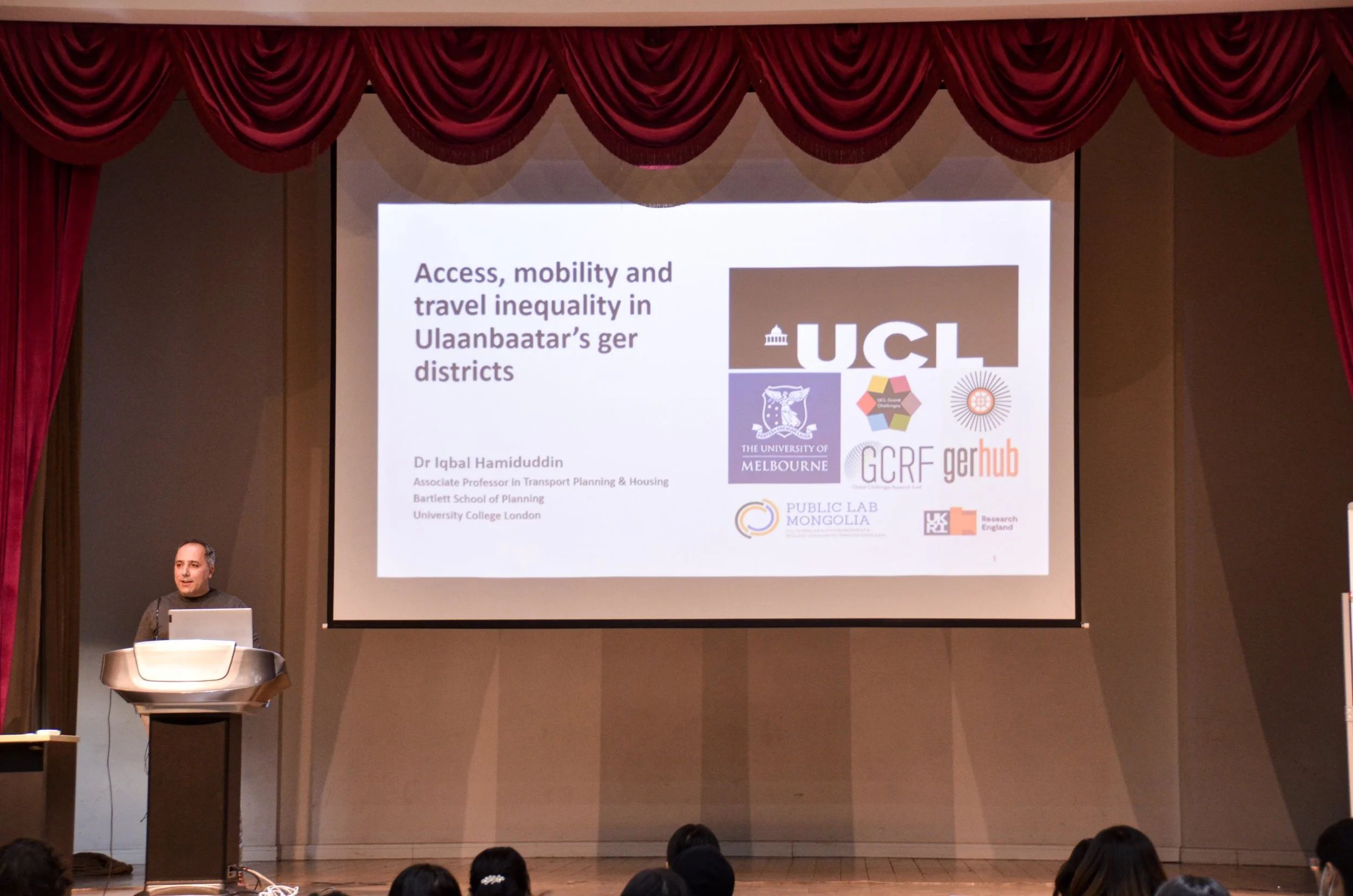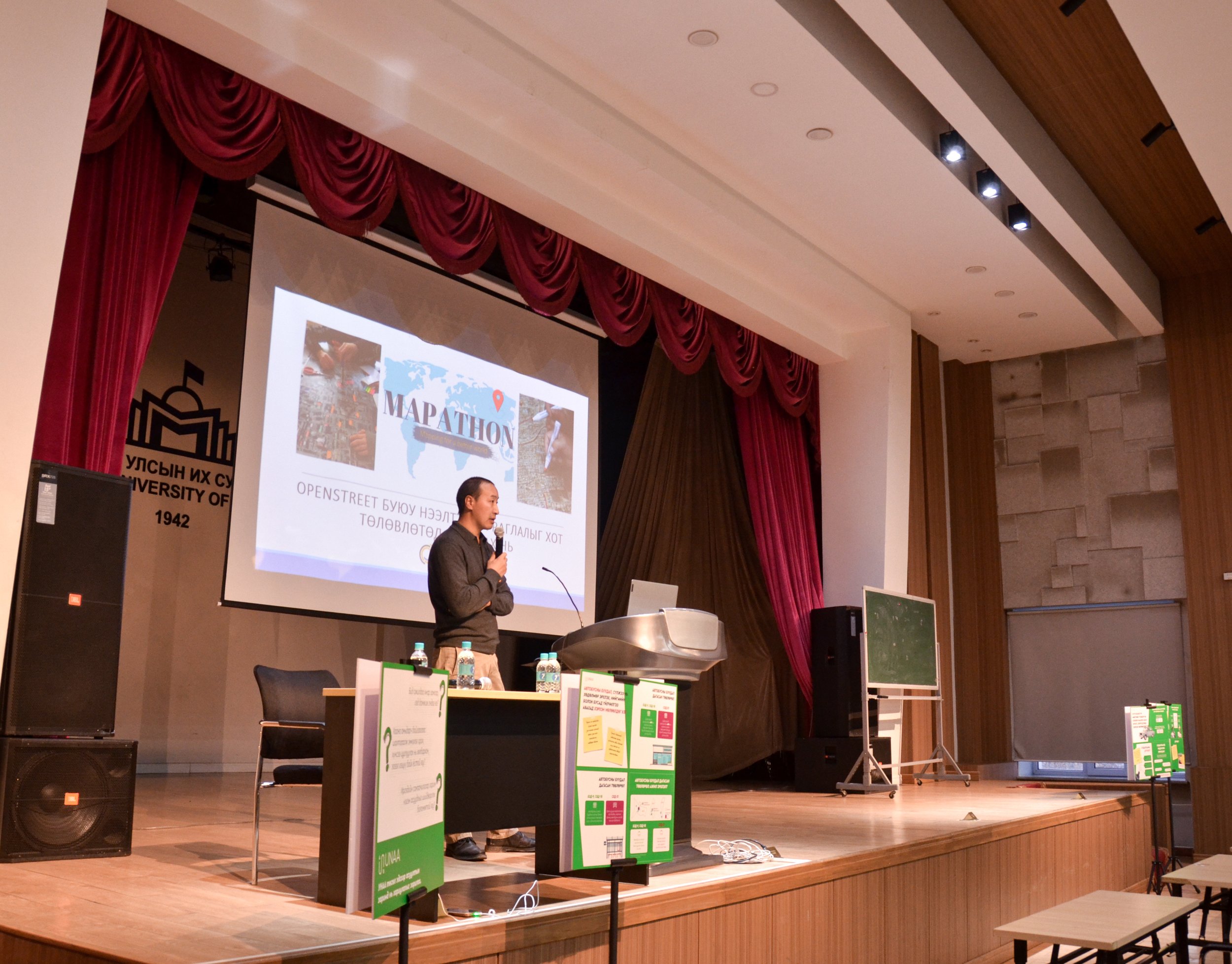GerHub Speaker Series: Mobility, Accessibility, and Urban Planning of Ulaanbaatar
On December 7th, 2022 GerHub NGO, in collaboration with the Geography Department of the National University of Mongolia and Public Lab Mongolia, held a speaker session that invited Dr. Iqbal Hamiduddin to share the Ulaanbaatar Accessibility Appraisal (UNAA)’s research trial results from their project at the National University of Mongolia. Dr. Iqbal Hamiduddin is a professor at the Bartlett School of Planning, University College London. The objective of the UNAA project was to address issues surrounding access, mobility, and travel inequalities in Ulaanbaatar’s ger settlement areas and to find community-based solutions.
The research began back in March 2020 with the purpose of examining the lives of ger-area residents, and their commuting routines, and illustrating disparities in access and mobility between car owners and non-owners in the context of Ulaanbaatar city. Non-car owners bear the primary burden of time and travel costs and the impacts these have on low-income residents. Residents living on a low-monthly wage of MNT 420,000 would spend over 10% of their income on transportation-related costs, and they reported that they must walk 15 minutes or longer to access public transport, which demonstrated an imbalance when compared to those in the highest income category.
As a guest speaker, Erdenetsogt Sumiyasuren discussed the importance of open-source mapping in the research field of urban planning and geography. Erdenetsogt is an open -source data and geospatial analyst and the CEO of Public Lab Mongolia. He shared his experiences with practicing open-source mapping to tackle some of the main urban problems including mobility issues and air pollution.
The event was part of GerHub’s speaker series and aimed to provide real-life numbers to provoke more insightful thoughts in students majoring in urban planning and geography. Participants gained knowledge of the significant mobility challenges that ger district residents face due to transportation inequality and actionable ways to solve some of these problems.
Read the research's primary findings here.






